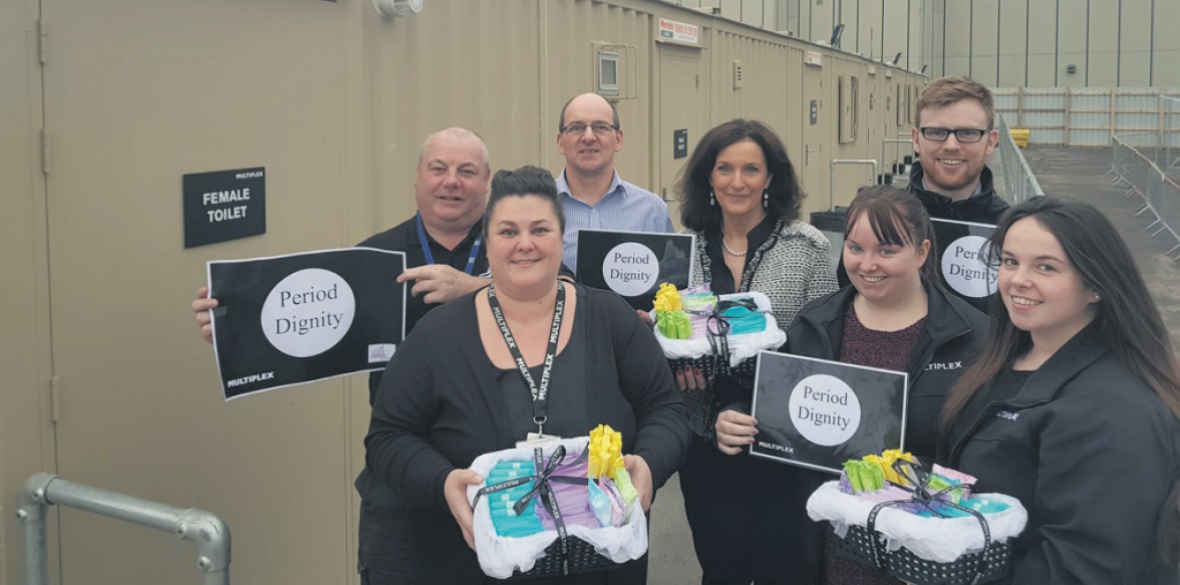This is the last article you can read this month
You can read more article this month
You can read more articles this month
Sorry your limit is up for this month
Reset on:
Please help support the Morning Star by subscribing here
UNITE is passionate about ensuring that all its members regardless of race or gender throughout all its sectors are not discriminated against in the workplace.
This commitment is demonstrated by the work that Unite is undertaking in sectors such as construction, where women are currently very much a minority of the workforce.
To better understand the challenges that women experience in construction, Unite recently surveyed our female members working in the sector.
The response rate was phenomenal and provided vital insights into the working lives of women in construction.
The majority of respondents (65.3 per cent) said their employer had failed to make adjustments to accommodate their needs as women workers.
One member summed up the issues members face: “In a perceived male-dominated workforce, you have your skills and abilities regularly doubted mainly because you’re a woman and some men almost feel threatened when you complete a job better than male colleagues. Some, if not all, men at first can be extremely patronising towards you, questioning your job or presuming you work in an office.”
Aside from issues about pay equality, the dominant concern that arose from the survey concerned welfare facilities: the lack of clean toilets, the supply of sanitary bins and shower facilities.
For example, a member gave a graphic account of her frustrations on trying to use a women’s toilet on a construction site.
“Toilets for females are a basic requirement but are usually locked, you have to seek the key from someone so by the time you find the person, usually male, with the key and after asking several people, also usually male, half the site know you want to use a loo and when you open the door, guess what, it is usually being used for storage.”
Unite has been running a period dignity campaign across the whole union. The campaign is about period poverty because some workers struggle to pay for sanitary products.
Unite’s campaign has been very successful with many organisations adopting it. This week Rolls-Royce announced that not only was it adopting the period dignity campaign throughout the UK but globally across 50 countries.
Our survey clearly demonstrated that for period dignity to be achieved for women construction workers the campaign needed to be more wide-ranging.
Unite is now asking construction companies to sign up to four simple policies to achieve period dignity.
- Designated female toilets, always accessible, regularly cleaned and lockable
- Handwashing facilities with running water and soap provided
- Sanitary bins provided which are clean and regularly emptied
- Sanitary products provided in a dispenser in a discreet location and ideally free.
The first site to endorse Unite’s campaign was the Glasgow University campus being built by Multiplex and a campaign pack to ensure other sites follow Multiplex’s lead is in the hands of all the union’s reps.
Implementing these simple four steps will make a significant improvement to the lives of women construction workers, judging by the comments our members made including: “There are female toilets available but generally the ones on site are unisex portaloos. These are usually disgusting”; “I have to keep my sanitary products in my toolbox because there are no machines in the toilets. I have been told to keep them in a drawer but I don’t work in office?”; “Asked for sanitary bins, got ignored. If a female says anything they don’t like, they put it down to PMT.”
Construction is facing ever growing skills shortages and effectively excluding half the population means the industry is trying to tackle the problem with one arm tied behind its back.
Sadly, while there is a shortage of construction apprentices across the board, it remains much more difficult for women applicants to secure a training berth.
In total 9 per cent of male applicants eventually secure a construction apprenticeship while the figure for women is just 6 per cent.
Achieving period dignity for women in construction is a small first step to making the construction industry fit for purpose for women in our industry.
Employers who step up to the mark and do what is right have a far greater chance of retaining and attracting a skilled workforce.
Unite will not stop campaigning until women construction members achieve full equality in this sector.
Gail Cartmail is an assistant general secretary at Unite.










